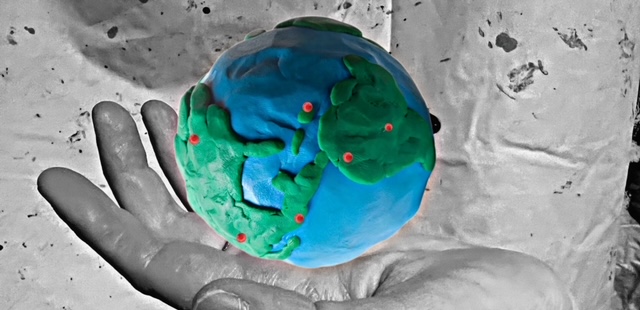If you haven’t played Trivial Pursuit in a few years, like I hadn’t, you’d probably have noticed that some of the answers are now outdated and therefore wrong. Although no examples come to mind (I don’t know why I even bother to carry a notebook) they mostly were in the categories of Science & Nature and Sports.
The inaugural version of the game was released in 1981, four years before my son Daniel was born. There are vast expanses of trivia about which he and his wife, Pauline, have not a clue. In turn, they have both the original and a newly updated version of the game. The newer version has vast expanses of trivia about which Geri and I haven’t a clue because at some point in time we stopped paying attention.
On our recent trip to Ferndale, the bedroom community of Bellingham, Washington, in which Pauline and Daniel live, we melded the two versions of the game. Obviously, we got the old version questions; they, the new. It was a fun time, a fitting end to each day.
Another highlight, besides the beautifully prepared seafood we consumed at every meal, was learning of and then watching “Ted Lasso,” the sports comedy-drama on Apple Tv+’. It’s sports satire like I’d not yet heard, and it was wonderfully funny. I highly recommend it.
But the greatest part of the trip took place on Tuesday when Pauline took her citizenship test and was sworn in as an American citizen. It was plain to see that she was proud to finally be an American. So too were her and Daniel’s friends who gathered to celebrate.
Daniel had decorated the spacious living area of their house with all things red, white and blue—flags and banners made in China. Hamburgers and hot dogs were served. I don’t know why there was Mexican beer, although Modelo is far preferred (by me) to Coors Light. Thankfully, my son avoided the country pitfall that is Lee Greenwood’s “God Bless the U.S.A.”
Through some bunch of treaties with some other countries, Pauline is accorded dual citizenship: her native French and now American. I’m jealous because I think it would be cool to have dual citizenship. Unlike Geri, Courtney and Daniel, who are blessed with that status in Ireland, I have no opportunities given by birthright to make a similar claim.
But that doesn’t stop me from wondering what countries I might gain such status through study and allegiance, and which ones reflect my ancestral background, cultural interest, or indoctrination of faith.
Having a dual citizenship in France is most appealing. I love the food and I can get around a French menu and wine list without too much effort. There are many parts of France I’ve yet to visit, but having an apartment in Paris or a cottage in Dijon would be great jumping-off points for learning more about the country.
For similar reasons, Italy is next on the list.
I spent a week in the Czech Republic a few years ago. I loved every minute of it, from the slivovitz (vile plum brandy) to the knedliky e zeli (dumplings and sauerkraut). The food is what I grew up eating, and they make a variety of delicious beers. The history is fascinating, and the people are, for the most part, warm and friendly.
While most of the people in Prague speak English, it would seem prudent to know more of their language than the names of a few menu entries. It’ll never happen, as there is nothing about the Bohemian (Czech) language that is recognizable. For instance, this is the warning message printed on cigarette packages:
Kombinovaná / zdravotní varování / Pro tabákové výrobky / určené ke kouření.
See?
Currently, Israel is nowhere I’d care to go. I don’t speak the language except for a few lines from Passover seders. I know only show-biz Yiddish, but not enough of it to gain entry to the Friar’s Club. And the unrest there is far too unsettling for me. I’d much prefer to be friends with my neighbors than view them as enemies.
My mother was 100 percent Scottish. After brief stays in Appalachia, her grandparents (both sets) found their way to central Nebraska. Her mother’s side were clod busters who lived in a straw-bale house. Her father’s people hailed from a somewhat dysfunctional bunch of drunk lawyers who were anti-abolitionists. One relative was an Indian hunter.
I’ve never been to Scotland. Pictures reveal a terrain that I find attractive. I know nothing about the Scot’s food other than haggis, which sounds utterly revolting. Golf was created in Scotland, which demonstrates how its residents can endure both masochistic tendencies and tedium. It’s also where Scotch—both blended and single-malt—was first created.
That by itself might be enough to entice me to carry an additional passport but then I remember that Scotland is the home of both kilts and bagpipes.
And there is a language problem: they speak a form of English that I can’t quite understand.
Photo illustration by Courtney A. Liska
Babi’s Bread Dumplings
As told to my mother
1 package active dry yeast (2-1/4 teaspoons)
1 teaspoon sugar
½ cup milk, scalded and cooled
1 cup milk, warm
1 egg
½ tsp. salt
3 ½ cups flour
3 slices white bread, crumbled
Mix yeast & sugar in the ½ cup milk. Let stand for 10 minutes.
Mix warm milk, egg, salt, yeast mixture and flour. Add bread. Knead on a floured board for five minutes or so, and let rise, covered, for ½ hour. Divide and shape into three loaves. Cook in boiling water, about seven minutes per side. Drain, let rest for a few minutes and slice. Serve with butter or topped with gravy.
